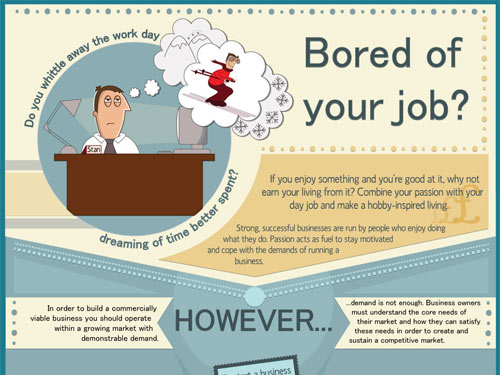Many people see successful businesses and think “what a simple idea, why didn’t I think of that?” But what they often don’t realize is the sheer amount of planning and work that went into making that business a success – not to mention the money spent. In fact, there are a lot of misconceptions that people have about starting a business. Here are three of the most common.

1. It is All About the Product
When it comes down to it, if your business starts with a bad product, it cannot succeed. However, just because your business starts with a good product, it does not necessarily mean that it is guaranteed to succeed. One of the biggest assumptions that people make when starting a business is that people will actually buy their product. Whether it is because of bad marketing, unaffordable prices, or just a bad product, there are many reasons why certain ideas do not take off with consumers. Extensive research is needed to prevent this sort of a problem. Things such as surveys, market research, and focus groups will help you to know what people want, as well as where there is space in the market. Again, you could have the best idea in the world, but if it will be entering an already saturated market, it will struggle to take off.
2. Money is All the Motivation That I Need
Obviously you are going into this business wanting to make some money, but if you sole motivation is that you want to make a million dollars, you might just want to rethink it all. It is incredibly hard for a startup business to even break even, let alone start making money, and this will take a lot of hard work and time. When not much else is going for you, passion and sheer enjoyment of the work that you do will be the only things that carry you through. Your business is also much more likely to succeed if you are creating it because of an interest and talent for business, and passion about your product or service.
3. A Business Plan is Ironclad
The most common piece of entrepreneur advice is to have a solid business plan. Firstly, it is important to have a business plan. Not only will it help you organize your ideas and prepare for what comes next, but you will need it to present to potential investors who will help you to fund your venture. But one mistake that people make is over planning, as well as taking a plan too far. As you start your business, you will soon realize that it is full of hurdles to overcome, and pits to climb out of. The business world is notoriously fickle and constantly changing. This makes it almost impossible to have an ironclad business plan, because within a few months, it is likely that you will just have to throw it out of the window. Good businesses quickly learn to adapt to the changing needs of the market, and those are the ones that survive.
About the Author: Robert Cordray is a freelance writer and expert in business and finances. He has received many accolades for his work in teaching and small business consultation.




